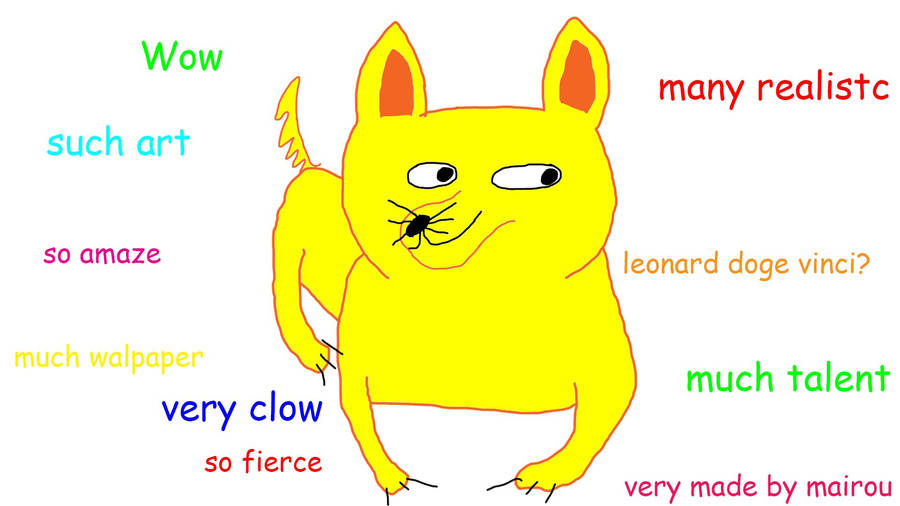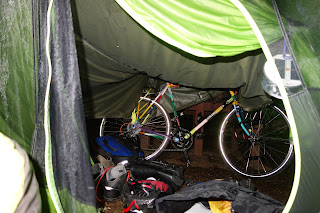MOVING IN STEREO(TYPES)
(During my rides I have time to reflect on subjects and they condor old somewhat relative memories. This is one of them)
As cyclist we deal with motorists having a blanket view of us on the road. We blow stop signs, dress like queers and so many other dubbed names along with the scofflaw generalization.This trip tends to reinforce stereotypes or I choose to see them. Sure there are those that don’t fill the bill, but too often I see it. The hunter mentality of posting a head animal head on the wall. For what reason? Pride? In Crowheart as I sat for lunch the patrons came in and they were cliches of what you see in a movie. Is art imitating life or vis versa? Even at the start hipster cliches everywhere. Oh and one of my favorite new terms that I'm waiting for stereotypes for, DREADNECKS. A combo of redneck and hippie. They are hunter types that believe in living off the land with gardens and recycling. Actually met a guy in Missoula that could possibly fit the bill. I thought of him as the hippy cowboy. Thinking about stereotypes and why we create them is interesting. Not all are bad per say but they do have an undertone of mocking a certain cultural difference, some are more dangerous than others but for the most part they really are a useless tool for anything but yet we love them and continue to create more to find fault in others.

As cyclist we deal with motorists having a blanket view of us on the road. We blow stop signs, dress like queers and so many other dubbed names along with the scofflaw generalization.This trip tends to reinforce stereotypes or I choose to see them. Sure there are those that don’t fill the bill, but too often I see it. The hunter mentality of posting a head animal head on the wall. For what reason? Pride? In Crowheart as I sat for lunch the patrons came in and they were cliches of what you see in a movie. Is art imitating life or vis versa? Even at the start hipster cliches everywhere. Oh and one of my favorite new terms that I'm waiting for stereotypes for, DREADNECKS. A combo of redneck and hippie. They are hunter types that believe in living off the land with gardens and recycling. Actually met a guy in Missoula that could possibly fit the bill. I thought of him as the hippy cowboy. Thinking about stereotypes and why we create them is interesting. Not all are bad per say but they do have an undertone of mocking a certain cultural difference, some are more dangerous than others but for the most part they really are a useless tool for anything but yet we love them and continue to create more to find fault in others.

My first legit job was as a cabana boy at the NY Athletic Club(NYAC) for a summer in 1980. We wore those tight short shorts and a white t shirt with big red letters across the front that read “CABANA”. Similar to the CUTTERS shirts from “Breaking Away”. It was a high society country club more than athletic. People would come in and we were expected to open their cabanas and carry any items for them to the pool. Many times they would snap at you to move which was the norm then. I don’t recall ever seeing a person of color but there were jewish people. See all us Cabana boys would sit on a bench under a big maple tree and wait for patrons, and I soon learned from the others who the jewish folks were a the others would turn their heads as though they didn’t see them. But I just did it like a good boy. It was discussed everyday how they didn't tip. And the 14 yr old me took note and would agree. to and insult, were paid below minimum wage ($1.65/hr, min. wage $2.65) since the employer claimed we received tips, which we rarely did. If I went home with $4 in tips that was a good day. (This was also my first venture as a bike commuter, 8.2 miles each way on busy streets, route.)
Now mind you, growing up in NY there is an anti semitic undertone in much of the area. My family overly fit that bill. My grandmother being the one to ingrained it in us that "jews" were never to be trusted and they will take every opportunity to take even a ‘penny’ from you. And she took every chance to show us. Like the time I shoveled snow all day for a neighbor in 1977 during a blizzard and he gave me $.50 for 5 hrs of shoveling. I went home frozen with tears because my wet sock covered hands hurt so bad from the cold. Then my drunk ass grandmother stormed down 2 houses wearing nothing but a mumu and slippers in freezing temperatures (in the right movie it would have to look comical) with me in tow. She fisted and kicked the door screaming “You cheap fucking Jew!” over and over. Soon $10 popped out the mail slot. Now I have no idea if he was even Jewish. But it did have an effect that I would have to counter every time I had those thoughts about Jewish people. And with African Americans it was worse but far less(our exposure was limited for the most part as very few lived in the same area), so much so the stories are too offensive.
It’s hard in life to counter our brain and how we categorize each other in its filing cabinet. Many of us try our best to recognize when we need to push against stereotypes. Mostly you have to just put blinders on or even better, be around those that you harbor stereotypes against more often. I’ve also found that younger generations, at least the ones I hang with, tend not to recognize the stereotypes as much. One other thing I notice is taking the time to learn sociology and psychology in a real world context. Listening to friends experiences from other races, nationalities and any other category you can imagine is an amazing way to challenge a mind as to the effect of stereotypes on how they get treated, or how they see it. Podcasts are another great avenue to gain another perspective. I love learning through storytellling and there are lots of experiences to be gained with today’s technology which can give access to more views. There is a new program from the from the producers of RadioLab called More Perfect about the Supreme Court. In an episode about jury selection, I was appalled at the historical exclusion of blacks on juries. Absolutely fascinating discussion that borders on depressing at times of the situation we are in. But there was this one NAACP lawyer saying that he would exclude his own parents from juries when it came to having a black defendant. Saying his mother would blame the typical black hoodlum for her having to lock her doors and having to deal with whites not trusting blacks. And his father on the flip side not trusting a single thing a cop says after witnessing too much injustice delivered by the hands of police. (And an episode of This American Life about the Ferguson School district and bussing that was even more disturbing of how others really view less fortunate students. Truly got my blood boiling.)
Right after this episode was a take on Frame of Reference from Invisibilia. Another intoxicating discussion about human behavior in respects to how we react to situations through the context of our own experiences. The context lens, pun intended, has a tendency to allow us to frame the world according to our experiences and therefore it’s sometimes difficult to empathize with others coming from a different experience. Hell, today’s political discourse is clear evidence of that.
I could continue this in respect to how we seemed to enjoy categorizing others and ourselves or how inclusion might lead to developing certain culture traits in order to fit in. But that's more of what separates us. We have multiple frames of reference all brought about by defining experiences. I’ve found that travel, especially outside one’s normal world, can create new frames, new lens to see through, and through that we can gain empathy and get past a lot of what separates us. This trip has been not only a culture shock but created new eyewear for me. And on top of that a bewilderment that people would be willing to live in the middle of nowhere with little to do and at least seem happy with it. To each his own but I couldn’t do it. But I do get to see some of the environment they live in and appreciate it’s beauty. Maybe that’s enough for some. And on the flip side, you can witness those folks curiosity of why would anyone be willing to ride a bike across a vast land area and live in a tent. Those interactions are exactly the way we make the world a little bit closer. You hope that by the time you leave their sight that something might stir in them that the chance meeting was worth sharing with others.
I could continue this in respect to how we seemed to enjoy categorizing others and ourselves or how inclusion might lead to developing certain culture traits in order to fit in. But that's more of what separates us. We have multiple frames of reference all brought about by defining experiences. I’ve found that travel, especially outside one’s normal world, can create new frames, new lens to see through, and through that we can gain empathy and get past a lot of what separates us. This trip has been not only a culture shock but created new eyewear for me. And on top of that a bewilderment that people would be willing to live in the middle of nowhere with little to do and at least seem happy with it. To each his own but I couldn’t do it. But I do get to see some of the environment they live in and appreciate it’s beauty. Maybe that’s enough for some. And on the flip side, you can witness those folks curiosity of why would anyone be willing to ride a bike across a vast land area and live in a tent. Those interactions are exactly the way we make the world a little bit closer. You hope that by the time you leave their sight that something might stir in them that the chance meeting was worth sharing with others.
One last thing to add to this train of thought. The couple I travelled with for 3 days in Wyoming shared something with me about the purpose of travel and I put into the perspective off this post. If your points of reference, the extremes, are close together, your world, and I would argue self, view becomes narrow. Until you widen your extremes, joy and pain, your life will remain void or lessened of new experiences. And a lack of developing new frames of reference.
Thanks for reading and the next post will be far less serious, a look at New Belgium Brewery.
PEACE!
Thanks for reading and the next post will be far less serious, a look at New Belgium Brewery.
PEACE!


Comments
Post a Comment